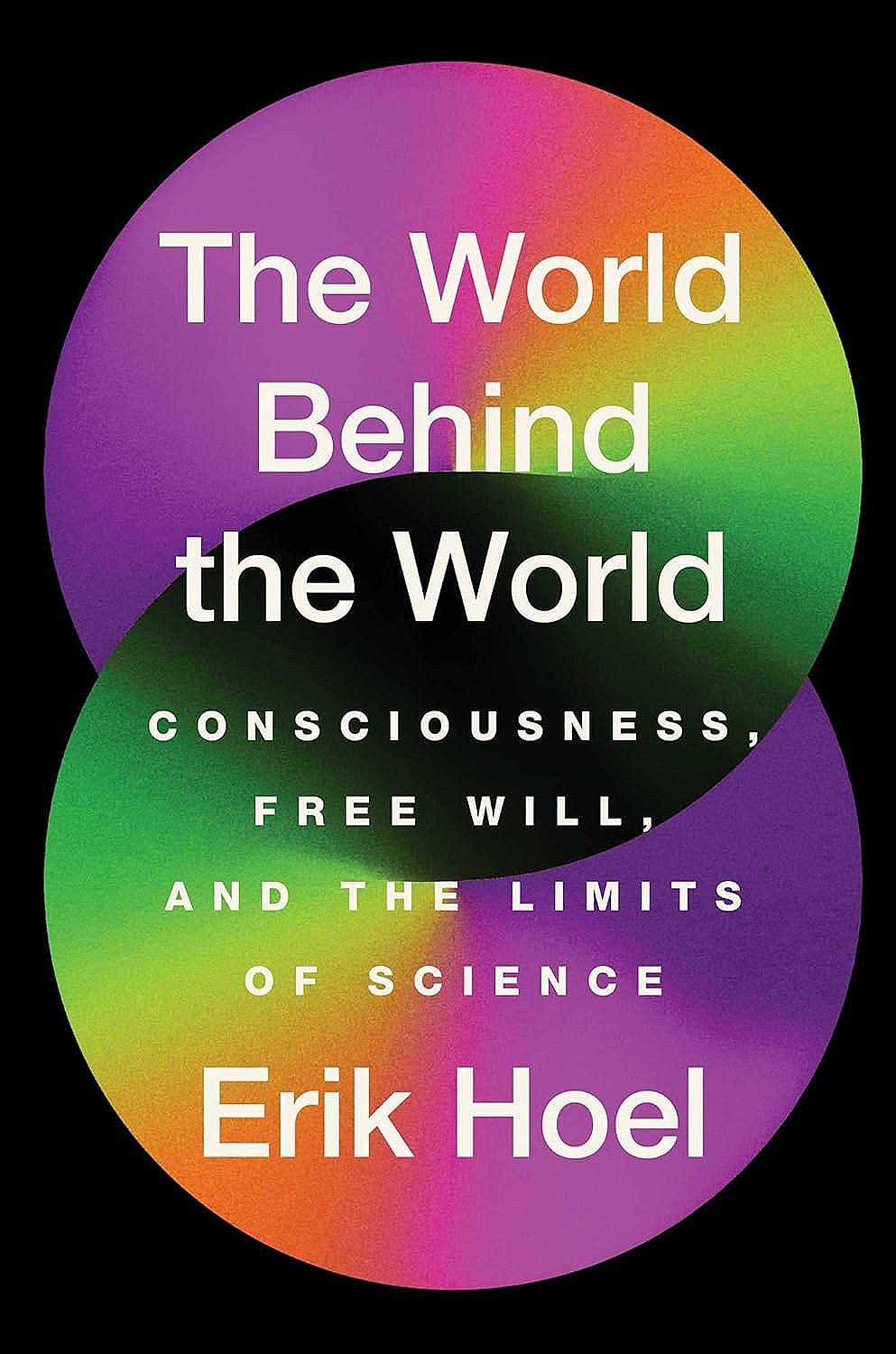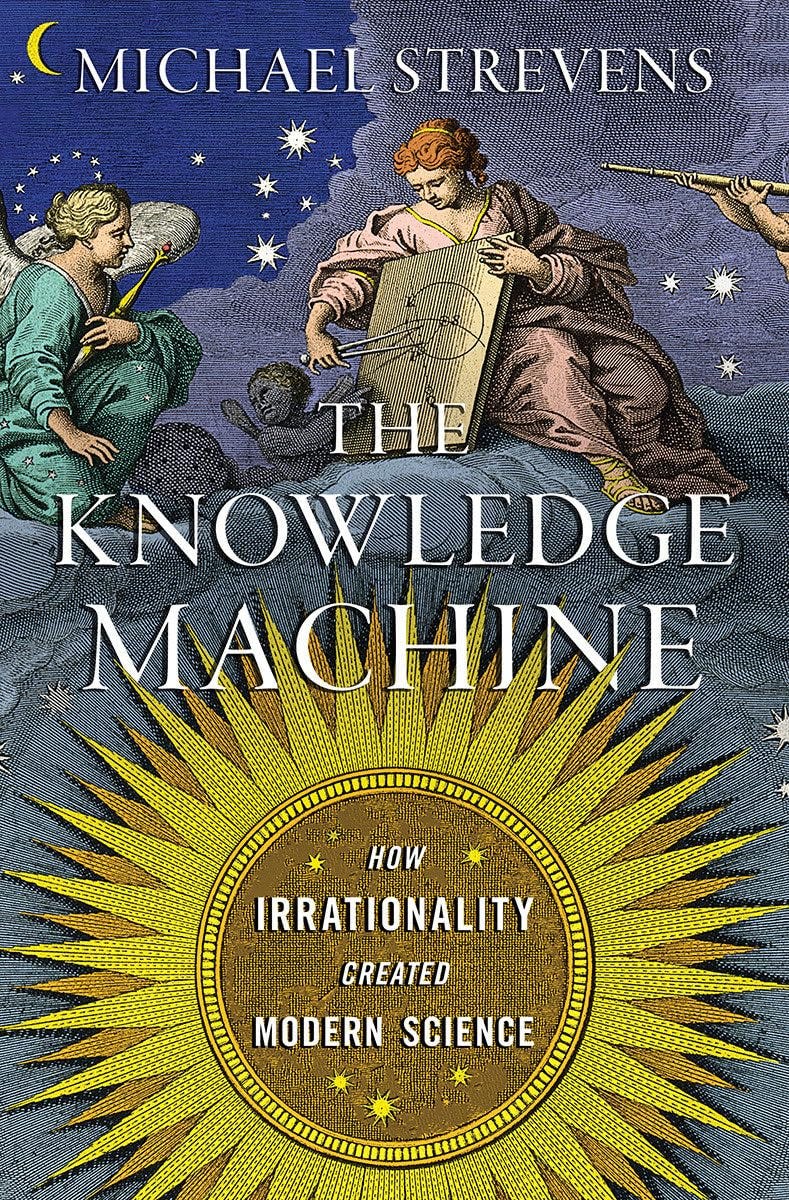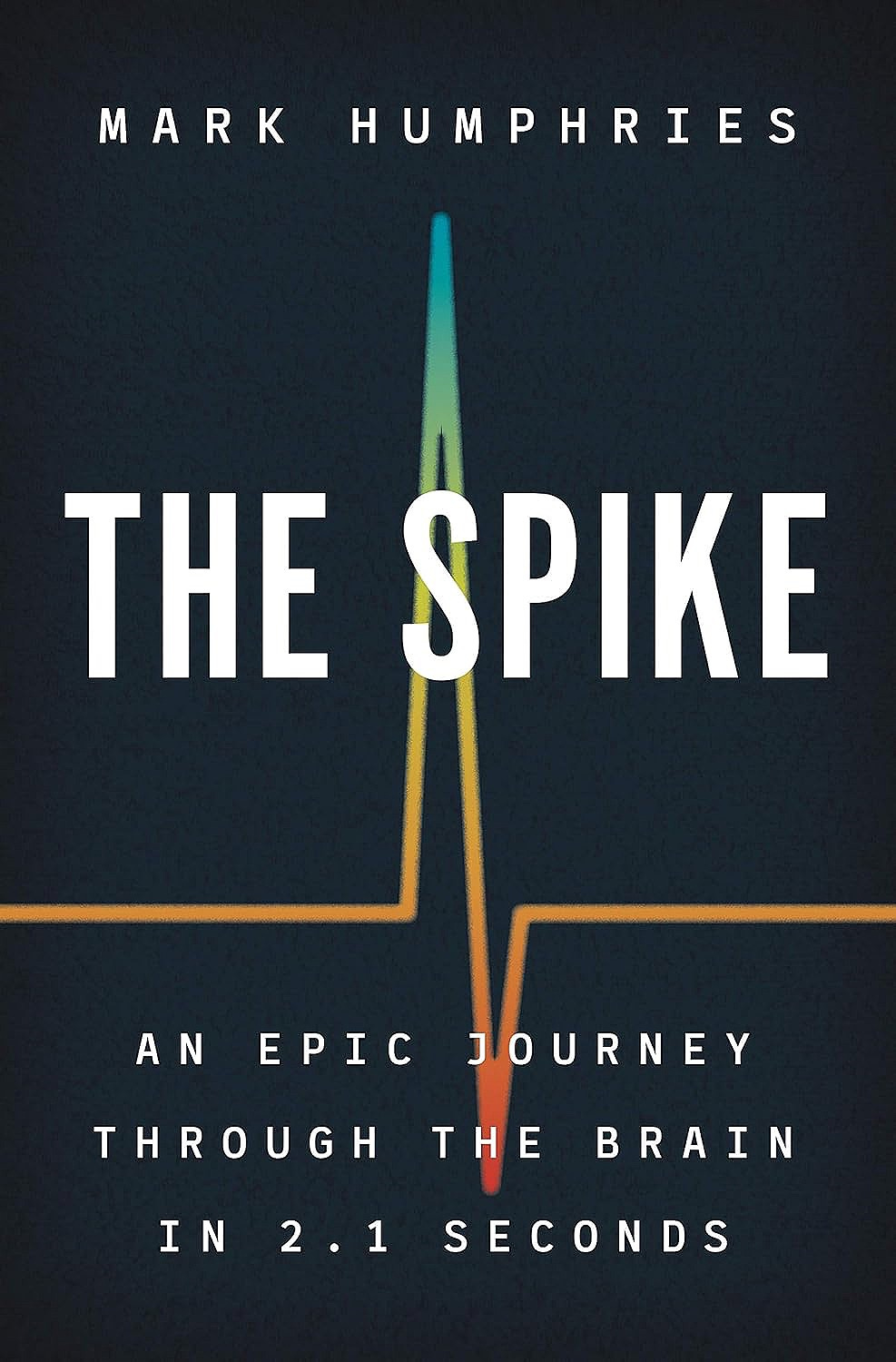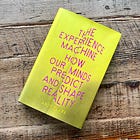Mystery to Ourselves: The Brain’s Black Box
The Human Self in Literature and Science: Reviewing Eric Hoel’s ‘The World Behind the World’
It’s an intriguing fact that humans come into the world without the tools to explain it, or for that matter our own experience of it. We have to develop those tools. The record of our attempts persist in the ochre shapes of hands, hunters, and animals on ancient cave walls, liturgical objects and activities from sacred sites, and myths and legends passed through communities.
We can say these and related efforts add to our knowledge inasmuch as culture is cumulative. Insights compound over time, so that a person born in a particular century may have access to better developed cultural tools than a person born at an earlier time.
Note the emphasis on may. Most of these developments are culturally contingent in terms of value, slow in coming, and unevenly distributed across peoples and regions. As such, we should resist triumphal narratives of progress and advancement. But! Progress and advances nonetheless occur and warrant attention.

In The World Behind the World, Erik Hoel points to two primary examples: literature and science—no surprise since Hoel is both a novelist and a neuroscientist. Along with The World Behind the World, he’s also the author of The Revelations, a fictional exploration of neuroscience’s search for consciousness.
The Intrinsic Perspective
Literature—think of the Epic of Gilgamesh, the earliest strata of the Hebrew Bible, or the Iliad and Odyssey—unlocks our understanding of the world and what it means to be a human within it. But literature isn’t static, nor does it produce singular, predictable outcomes.
As people worked with the tools of literature, they innovated, developed, and improved them. In time these developments opened up what Hoel calls the intrinsic perspective. Instead of illuminating the world outside—the extrinsic perspective—literature began equipping people to directly explore and manipulate the interior world of their own emotions, beliefs, and memories.
We can guess that people have always had access to these and other aspects of their consciousness, but Hoel argues that literature as a cultural tool expanded our access along with our ability to control it. As a product of successful cultural innovation, this expansion has been cumulative. Literary innovators added their developments to the cultural toolkit, allowing subsequent users and consumers to both benefit and further innovate.
Whereas literature began with extrinsically oriented tales (such as the Iliad, which largely emphasizes the objective, observable behaviors of its characters), in time more subjective, inwardly focused, and individualized forms emerged (such as lyric poetry). There’s a world of difference between Homer and Sappho.
We can overstate this development, of course, as Hoel admits. But he also warns against ignoring it. Otherwise, we’ll miss a trajectory of literary innovation that leads to evermore interiorized forms, culminating in the novel.

Few devices have allowed humans greater access to their own consciousness than the novel, which invites exploration of motives, preferences, self-reflection, self-deception, and—importantly—comparison with the revealed motives, preferences, and so on, of others. The novel is a tool designed to spark self-awareness.
The Extrinsic Perspective
As the novel was taking recognizably modern shape in the seventeenth century, so was science. Like literature, science tells a story; that is, after all, what a hypothesis is—a narrative about cause and effect. But whereas literature came to privilege the intrinsic, science privileges the extrinsic.
Since the time of Galileo, science has proceeded by focusing on external realities, the objective, the observable, the measurable. Science progresses, as Michael Strevens argues in The Knowledge Machine, by recruiting the subjective, partial, untested intuitions of scientists and subjecting them to an externalizing process forcing the scientist to render their insights in forms available for evaluation, testing, and critique.

No one can appeal to good will, belief, confidence, or anything unless it can be put to the test. “I believe things that can be proven by reason and by experiment,” jokes P.J. O’Rourke in Give War a Chance, “and, believe you me, I want to see the logic and the lab equipment.”
This method has worked wonders for shedding light on everything from atoms to galaxies and all points in between. What it struggles to illumine? The human mind—consciousness itself.
Much of the drama in Hoel’s book concerns why. No reliable, predictive theory of the consciousness exists so far, though Hoel traces many attempts to do so. Despite all the advances, neuroscientists have made in the last half century and more—which are indeed impressive—they still can’t explain why or how a network of neurons produces the experience of being you. The extrinsic perspective is seemingly walled off from the intrinsic.
In this way, science differs significantly from literature as a cultural product, at least insofar as understanding human experience. Neuroscience demonstrates a lack of development; it’s not accumulating the kind of insights that fill in a picture of the self, consciousness.
As a neuroscientist, Hoel finds this concerning, even disappointing. There is some sort of missing element to the study of the brain that currently prevents researchers from make the leap from neurons to self-awareness. And maybe that’s not a bad thing just yet.
An Argument for Free Will
One thing the experience of you includes is the feeling of agency—the freedom to choose and power to act. One conflict between the intrinsic and extrinsic involves the latter’s tendency to reduce the subjects of its scrutiny to mechanisms. It’s disconcerting when this tendency is turned on the mind itself.
Suddenly from the perspective of neuroscience you’re not a free agent; rather, you’re a biological machine with manipulable levers, which runs counter to the actual experience of being us.
Let’s say you see and then reach for a cookie. Science can only comment on what it can observe, and that does include certain extrinsic aspects of consciousness. So a scientist can follow—as Mark Humphries does in his fascinating book The Spike—the neuronal firing in your brain from the moment your eye finds the image to the moment 2.1 seconds later you reach out your hand for the treat.

But it so far cannot shed light on the intrinsic aspect of the experience, including the rationale you follow to decide if you want the cookie or don’t. That processing happens in a black box. And that leaves room for free will—as a philosophical concept, yes, but more importantly as a simple, daily feature of being and feeling like ourselves.
There are reasons to believe that neuroscience will eventually sort out this challenge and make the same sort of advances that literature has made, allowing us to more fully see and explore inside ourselves. There are also reasons to believe we may never get there; Hoel’s argument at points involves intricacies that stretched my ability to follow but highlights hurdles that appear difficult to clear.
At least for now. I expect workarounds will be found. In the meantime, we can all enjoy a novel. And probably should: It’s one of our species’ best ways to travel inside the mind.
Thanks for reading! If you enjoyed this post, please hit the ❤️ below and share it with your friends.
Not a subscriber? Take a moment and sign up. It’s free for now, and I’ll send you my top-fifteen quotes about books and reading. Thanks again!
Related posts:





This is an elegant explication of something that I, as a layman, have been aware of for years, as my interests in the arts and in literature deepened. I am so glad that you wrote it and I intend to purchase the book that led to this essay. I have tried to explain this to those that I speak with varying results; but none so elegant as those you have written. Coincidently, I have just published yesterday, a humorous piece that toys with this idea of cultural construction. I will possibly revise it in light of your writing experienced this morning. Would you consider looking at it and commenting if you have time? My second question, in light of your last paragraph about the importance of novels — do you have any sense of whether good film continues on that path — or not?
I attended a business school reunion last year and over dinner a classmate said that he had no time to bother to read non-fiction. I pointed out that we were roughly the same age, but I had reached the opposite conclusion, and I had no time for anything but the best novels.